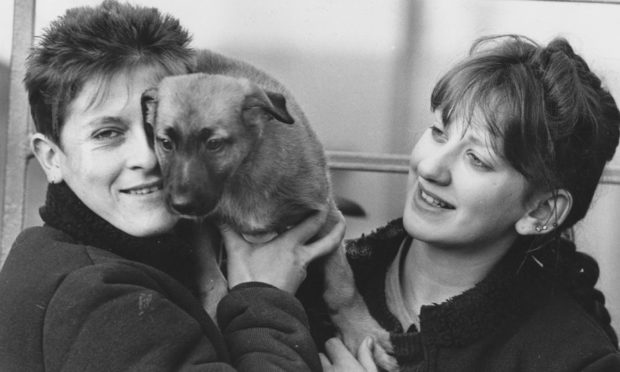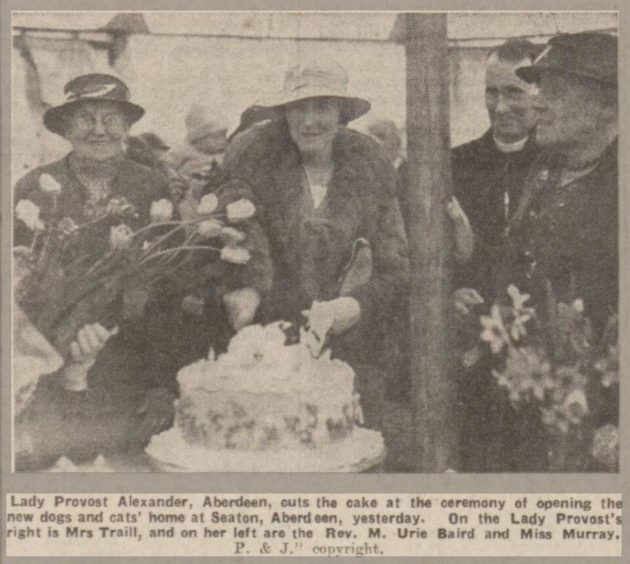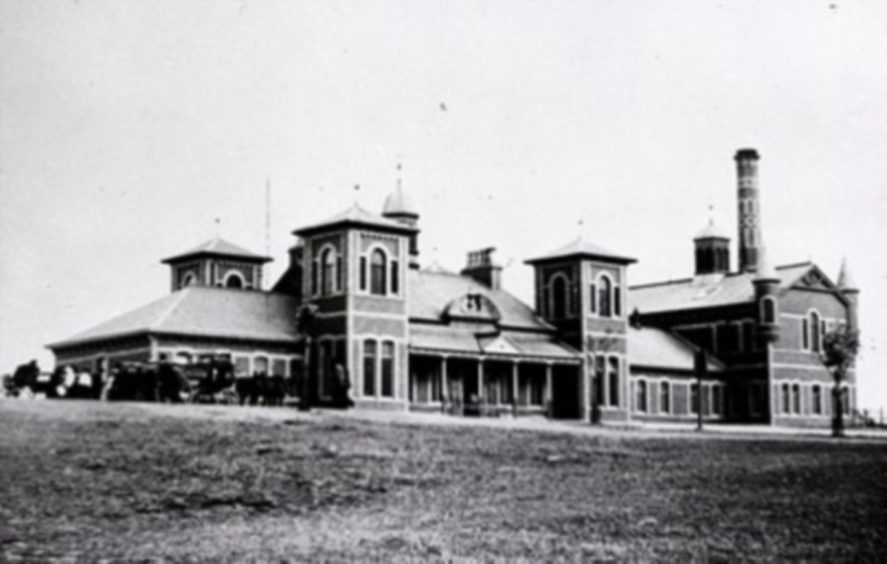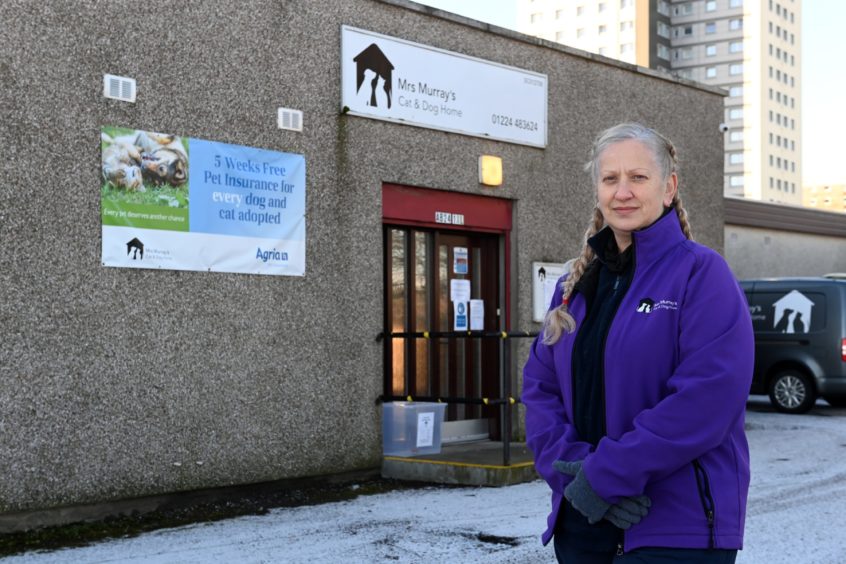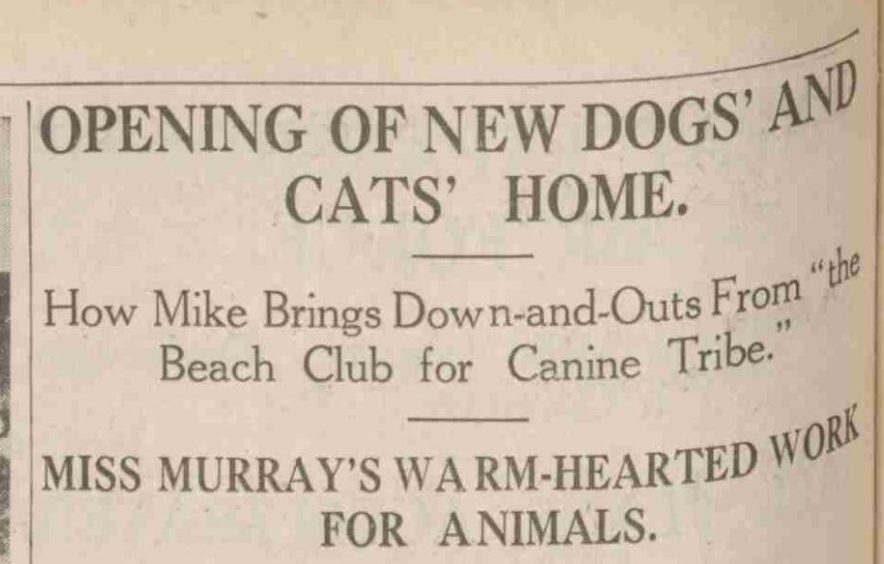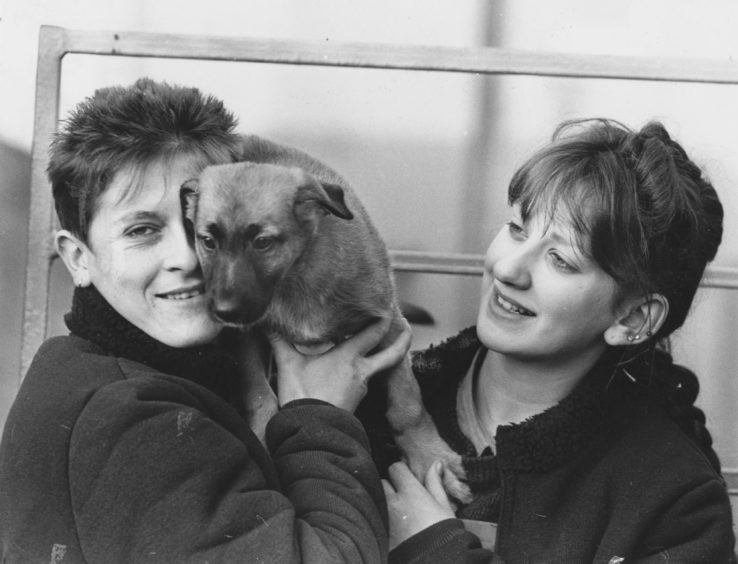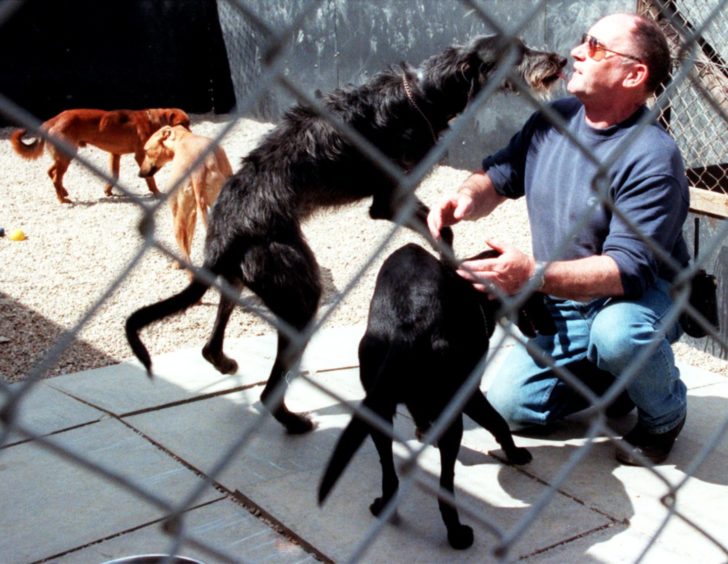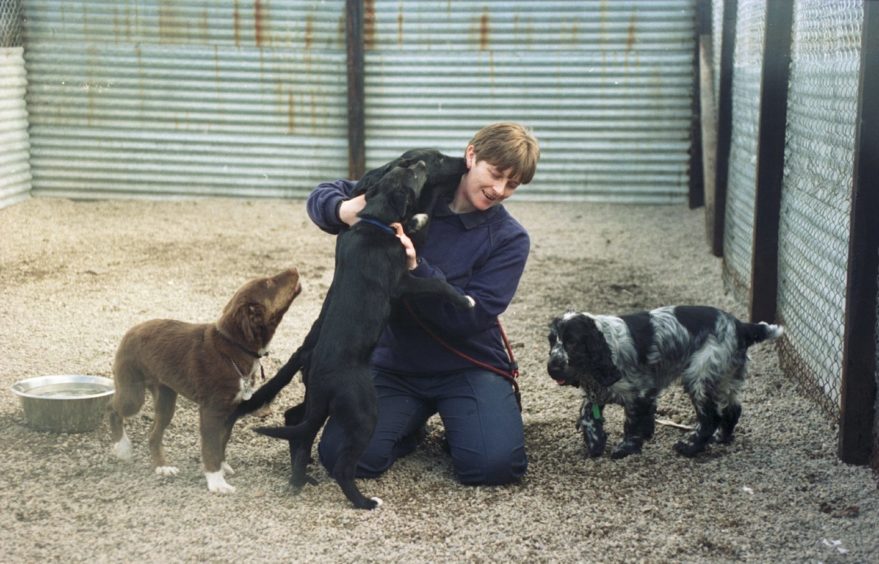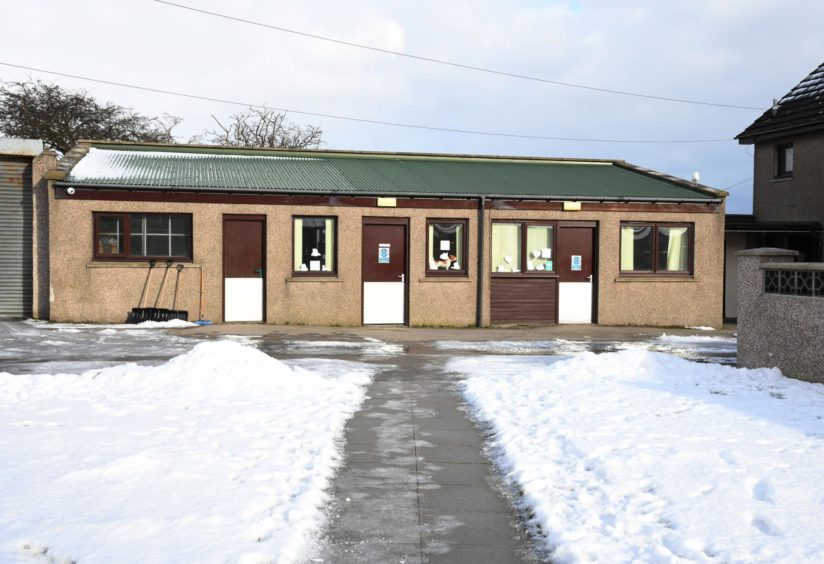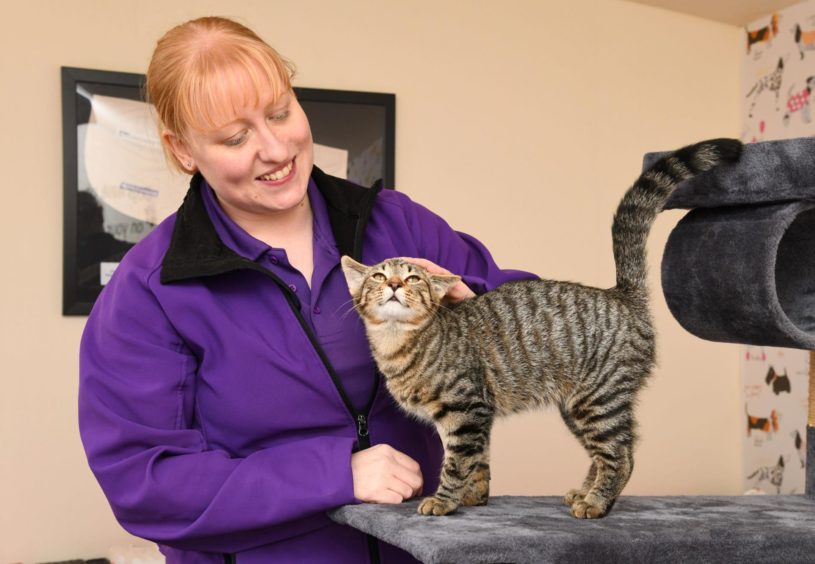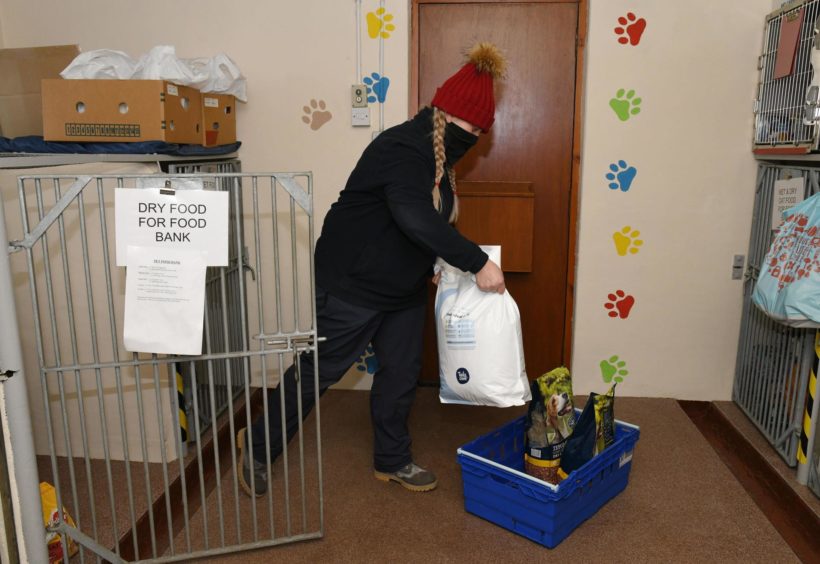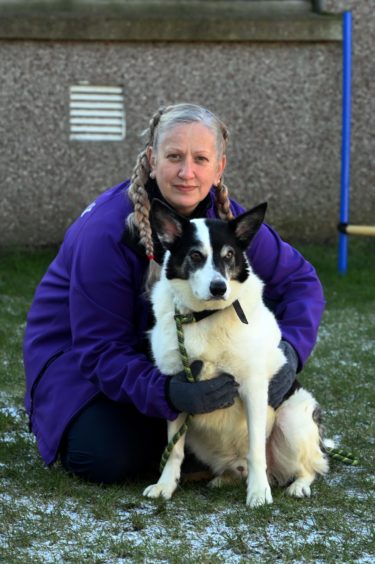It was like a scene from Disney’s classic Lady And The Tramp, played out on the streets of Aberdeen during the dark days of the Great Depression of the 1930s.
A band of stray dogs in Aberdeen started their own club at the beach, meeting up daily during the day near the Bathing Station.
One of the gang was Mike, who was no down-and-out pooch. In fact, he belonged to the superintendent at Mrs Murray’s Cat And Dog Home – and would take some of his down-on-their-luck canine chums home with him for a safe night with a meal and warm bed.
It would be easy to dismiss the Disney-esque yarn as urban myth – were it not for the fact Mike made headlines and was even name-checked by the Lady Provost Margaret Alexander as she opened a new building for the cat and dog home in 1935.
A Press & Journal story on the home’s annual report that year noted Mike had “been carrying out his rescue work and brought home four waifs during the year”.
A week later, as the Lady Provost opened the new building at Brickfield, East Seaton, where it still stands today she talked about Mike’s exploits. She said often saw a large number of dogs on the beach near the bathing station and had come to the conclusion they had formed their own “club”.
Mike was quite a character
The P&J reported: “She imagined (Mike) appearing there and when he saw some poor down-and-out of the canine tribe, offering him food and shelter and she imagined the down-and-out accompanying him home.”
Today, Marie Simpson, the manager of Mrs Murray’s, said the story of Mike sounds like something lifted from Lady And The Tramp.
“You would almost think Disney based their story on it… Mike was quite a character. He stayed at Mrs Murray’s but used to go out and roam about. He always knew when to come back at teatime and he often had one or two others in tow with him, so the home ended up with new ones to take in and look after, because Mike brought them home for a meal.”
But the story of Mike the rescue dog is just one chapter in the long history of Mrs Murray’s which has survived through world wars, depressions and is now facing up to the challenge of the coronavirus pandemic.
The home was founded in 1889 by Mrs Susan Murray, the wife of a prominent Aberdeen advocate, who started with just a few kennels in the grounds of her home at Inverdon House.
Just another mouth to feed
“She was just very much an animal lover and saw all these dogs that were roaming Aberdeen in various conditions. She felt she needed to do something, it was something she felt very passionate about,” said Marie.
“Back then it was more acceptable that dogs just roamed about and didn’t belong to anyone. They didn’t have the same family ties that people have now with their pets. Back then, they were just another mouth that had to be fed. Some were working dogs, but if they couldn’t work anymore, they were no use.
“People did have family pets, but back then they were just left out to roam about, They didn’t get walked, they just went and exercised themselves. If they didn’t come back, they didn’t come back.”
Mrs Murray raised enough money to start a small shelter just off King Street where no strays were turned away, being offered a warm bed and a meal.
“It would have been very basic, but they would have been well looked after, with straw for bedding. The dogs were fed on stale bread donated by various bakers that wasn’t sold at the end of the day,” said Marie.
“It was like saps, with milk through it.
“They also went down to the fish market and got fish for the cats. It’s not like nowadays with all these different types of food. It wasn’t the best thing, but it got them fed with a full tummy and a bed.”
Rehomed with loving families
When Mrs Murray passed away in 1919, her stepdaughter Miss Elizabeth Mary Murray carried on her work and in 1926, a committee of trustees was appointed to help with the management of the home, which became an Aberdeen institution for animals in need of TLC before being rehomed with loving families.
The new housing development at Seaton meant the home had to relocate from its King Street base. The charity had built up enough money to buy Brickfield Farm and in 1935 the animals were moved to the current location, with the farm outbuildings adapted for the dogs and wooden pens built for the cats.
“Things improved then as that was a big change. The buildings here were properly converted for kennels, there were exercise runs and big cat pens with outdoor runs for the cats, which was unheard of back then,” said Marie, adding it was a major boost for the welfare of the animals.
Over the next decades the charity quietly got on with its vital work, even in the face of world events, such as the Great Depression and world wars.
“Some of the men who worked here were called up, but the home carried on. Luckily, the bombing didn’t come here. They missed the home, even though some bombs fell in Urquhart Road, so we were lucky,” said Marie.
“There was more of a need for the place back then, with people being left homeless and maybe animals did not have places to go and could find shelter here.”
The 1970s saw more changes when the kennels and buildings were updated under the stewardship of manager Jack Carle. That included replacing the old wooden cattery.
Another refurbishment came in 2000 when just under a million pounds was spent to renovate the boarding kennels, including providing a roof over them and the exercise area.
“Part of that we had to do because people in the neighbouring skyscrapers had complained about the noise,” said Marie.
While Mrs Murray’s takes in cats and dogs whose owners can no longer look after them properly or have become strays, they have had other creatures left with them over the years.
Bearded dragons left in a box
“We have had baby ferrets left outside, one lady came in one day carrying a baby deer. She basically put it in my arms and said: ‘I found it’, so we had to call the SSPCA,” said Marie. “We’ve even had bearded dragons left outside in a box, and again they went to the SSPCA.”
Marie, however, would rather Mrs Murray’s didn’t have to take in any unwanted pets at all.
“Before you do make the commitment for a pet, do make sure you can give it that commitment. Do think long-term, look at the bigger picture and make sure you can take that pet for life.”
As it celebrated its 130th anniversary in 2019, Mrs Murray’s announced major expansion plans to give its vital work a boost. The £600,000 project included a new reception area, a new vet room, and grooming area, as well as private areas for the public either giving up their pets for rehoming, or picking up their new furry friends.
Unfortunately, the transformational work has been put on hold because of the pandemic, while the charity has been adjusting to financial impact of the coronavirus.
But Covid-19 has highlighted what has always been the mainstay of Mrs Murray’s – the unstinting support and generosity of the people of Aberdeen.
“Even back when Mrs Murray started it, she rallied the good ladies of the time, who had jumble sales and church sales for the care of the animals and that has kept going and progressed over the years,” said Marie.
No coronavirus compromise on care
“Aberdeen and the north-east has been absolutely fantastic to Mrs Murray’s. We are a local independent charity, run by folk from Aberdeen and people know Mrs Murray’s, they know who we are and what we do. There has always been people willing to do fundraising for us.”
That is more important now than ever. With Mrs Murray’s having to suspend both its rehoming and boarding operations, its loss of income runs into six figures. The boarding operation is key to funding Mrs Murray’s work in caring for its animals, from feeding them to offering veterinary treatment.
“It’s hard and tiring and staff have been furloughed,” said Marie. “Luckily it has had no effect on the animals. They just see they are still getting fed and their walks, the staff possibly have more time to interact with them as we don’t the public coming in. There has been no compromise to their care.”
But Marie said the public have been rising to the occasion to help Mrs Murray’s with donations and responding to fundraising drives by the home. For this year’s Valentine’s Day, that included the Wall of Love with people urged to send a card to some of the creatures being cared for at the home – as well as donating the cost of roses or chocolates to their upkeep.
“We have done various things, like adopt-a-thon auctions for crocheted or cuddly animals and they have been huge successes,” said Marie adding the main annual fundraiser – a Canine Carnival – was moved online with great success.
Support is heartening and humbling
“A lot more people have also signed up to give us a donation monthly and people have also been supporting us with food and from our Amazon wish list.
“People have been supporting us and we can’t thank them enough. It’s been quite heartening and humbling.”
Which is why Marie is so optimistic about what the future holds for the home.
“We at Mrs Murray’s do not let times like this get the better of us and although it is very hard we remain positive and do as much as we can to think of new and innovative ways to raise funds, spread the word and keep on going,” she said.
“We have after all not only survived the Great Depression of the 1930s and recessions before that, but also two world wars!”
Each year, Mrs Murray’s finds around 500 cats and dogs their forever home.
Some residents are long term, though, including Max the collie, who has been fully adopted by the home – the 21st century Mike.
“He loves his life here and it’s like having our own dog at work,” said Marie.
Although unlike Mike, Max doesn’t pop out to bring home any waifs and strays.
You can find out more about the home and how you can help at mrsmurrays.co.uk
